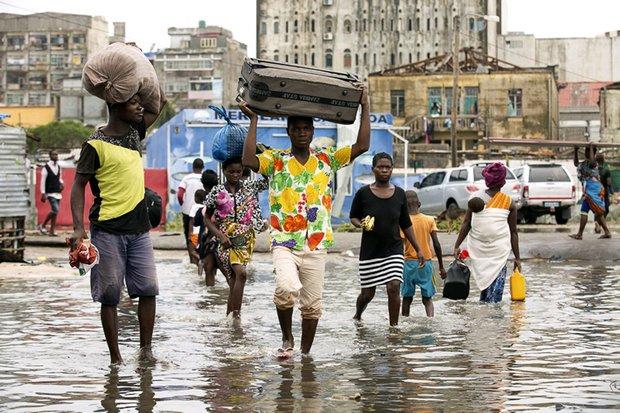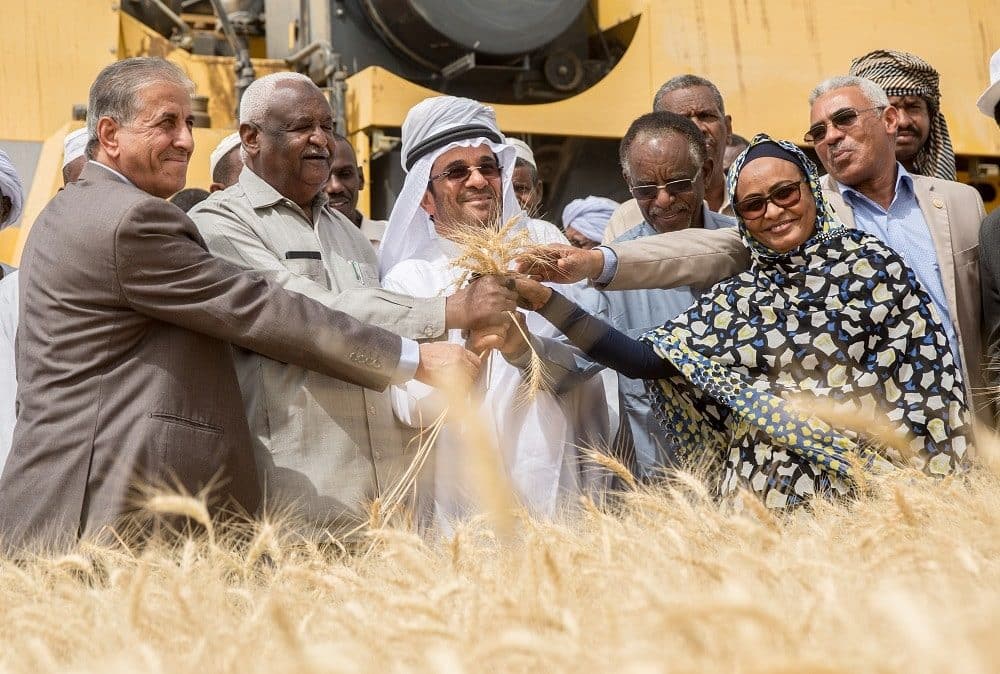
By Kofi Adu Domfeh
Extreme weather is becoming commonplace as the world warms.
With rising temperatures, the signs of climate change are everywhere – as more people feel the devastating impacts of stronger storms, droughts and burning heat waves.
Excessive floods are wreaking havoc on people’s lives around the world.
In the last few weeks alone, Cyclone Idai has impacted the lives of millions, killing more than 1,000 in Mozambique, Malawi and Zimbabwe. The affected countries will need over $2 billion to recover, according to World Bank estimates.
Even before the affected receive support, cyclone Kenneth is making a dangerously unprecedented strike in Northern Mozambique.
The economics of climate change is staggering. In 2017 alone, natural disasters – from floods to fires – caused record losses of $330 billion.
The need for people to take bold action in response to the devastation is now louder than before.
When local people are hardest hit
Saturday, July 14, 2018 went down as a solemn day at the Asokore Mampong community in Ghana’s Ashanti region.
Tears flowed uncontrollably as the mortal remains of three children and a woman, all victims of floods, were conveyed for burial after an emotionally-charged requiem service.
A day after torrential rains, the bodies of Christian, Louisa, Liza and Susana were recovered by officers of the National Disaster Management Organisation (NADMO).
The four were among more than 15 people in the region who were swept away by high currents of flood water, following incessant downpour in June 2018.
The situation was dire in other parts of Ghana, including the capital, Accra, which experience perennial flood disasters.
Questions have been asked if such deaths could have been averted. But the rains will not wait for answers before resuming the onslaught in 2019.
Severe rainstorms in the month of April alone have wrecked havoc in parts of Ghana, killing people and displacing hundreds in schools, homes and communities.
Unabated Flood Devastation
In years past, the sign of rains brought joy as children had fun bathing in the heavenly showers of blessings.
Today, many a community in major cities in Ghana begins to panic when the clouds get dark. People run for cover when the clouds gather for fear of losing lives and property to the rains.
Floods have ravaged communities, caused havoc to roads and collapsed bridges. Residents have been displaced, communities cut off, and socio-economic livelihoods impacted negatively.
The worse impacted are farmers – some farms in lowland areas get submerged in high volumes of flood water, after a downpour. Instead of counting their blessings of bumper harvest, farmers wail because they are unable to cart their harvests from farmlands to the market because of bad roads.
The Ghana Meteorological Agency anticipates more rainstorms and floods in 2019, and has warned farmers and residents in flood prone communities to stay alert.
There are likely agricultural losses with dire food security implications, as prices of foodstuff like maize, cassava, plantain and vegetables shoot up on the local market.
Driving Factors
Recent rains in Kumasi have been described as ‘unprecedented’ by residents. Streets and homes have been inundated as vehicles, houses and other property are submerged.
The blocking of drains and canals has been identified as the immediate cause of flooding. Indiscriminate dumping of refuse, especially plastics, blocks the drains and prevents water from running through the drainages and waterways.
Another major cause of flooding is the indiscriminate construction of buildings on waterways and wetland.
Runoff water needs to find space when the ground cannot absorb the rains. With structures sitting on waterways and the ground not able to contain the excess water, flooding is bound to occur.
These flood risks are exacerbated by climate change. Unfortunately, flood-prone communities cannot access accurate flood information to stay alert to stay safe from the floods.
Building Resilient Urban Eco-System
According to experts, rainfall patterns have been distorted leading to variation in the amount of rain. Parts of the country are likely to experience flooding due to a shift in rainfall pattern caused by climate change.
In recent days, local authorities have taken steps to dredge drainage systems and construct storm drains to reduce the impact of water overflow.
However, the effective management of solid waste and enforcement of laws on environmental sanitation are as critical as investing in green infrastructure.
The bigger picture, perhaps, is for local economies to efficiently manage the built environment in anticipation of future climate impacts. The construction of roads, bridges and other infrastructure must take into consideration extreme weather conditions.
The need for climate resilience in planning the urban eco-system should also take into consideration investments in climate-smart construction materials and technologies, while restoring and creating attractive landscapes, creating room for floodwaters by removing silt and restoring marshy riverine.
There should also be the concerted drive to create more awareness around the Sustainable Development Goals (SDGs) and human activities that adversely predispose the environment to degradation. Both State and Non-State actors should have the capacity to identify, create and implement actionable solutions to adapt to climate change.
Afforestation and agroforestry are major entry points to combat climate change and its impact on the environment, hence the need for communities to join forces with State actors in committing to initiate tree planting projects to re-green the environment.
The world must take climate action through the implementation of the Paris Climate Agreement by cutting greenhouse gas emissions to slow the speed of global warming.
But communities in vulnerable economies like Ghana cannot delay in taking adaptation measures to curtail the devastating impacts of climate change.












